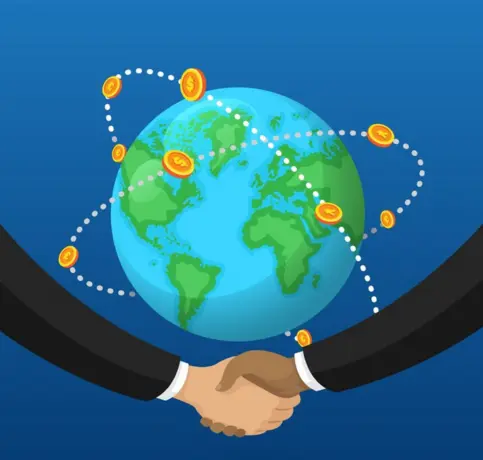Remitforex – The Money Transfer Expert
Remitforex – The Money Transfer Expert




Embarking on a trip to New Zealand or pursuing academics in this captivating land requires a deeper understanding of the country’s currency, the New Zealand dollar. Mastering the basics of this financial system will empower you to navigate everyday transactions with confidence and ease. Whether you’re exchanging foreign currency for Kiwi dollars, comprehending the denominations of coins and banknotes, or deciphering the nuances of tipping etiquette, equipping yourself with this knowledge will transform your New Zealand adventure into a truly fulfilling one.
So, embrace the spirit of exploration and delve into the world of the New Zealand dollar. Let it guide you towards an unforgettable experience in the land of the Kiwis.
When planning a trip abroad, it is crucial to consider currency exchange. This is especially true if you’re travelling to New Zealand. You must pay for your everyday expenses in the local currency, including food, transportation, accommodation, and activities. New Zealand’s currency is the New Zealand dollar (NZ$). It is often beneficial to exchange your currency before your trip as you may get a better exchange rate. The exchange rate can fluctuate, so exchanging your currency in advance can be more advantageous. Doing so will avoid the hassle of finding a currency exchange upon arrival in New Zealand and save valuable time.
Including currency exchange on your to-do list is smart, making your trip more enjoyable and stress-free.
Before proceeding, look at some interesting New Zealand dollar (NZD) facts.
The New Zealand dollar (NZD) is used in several countries other than New Zealand. The New Zealand dollar (NZD) is the official currency of New Zealand, Tokelau, the Cook Islands, Niue, the Pitcairn Islands, and the Ross Dependency. It was introduced in 1967 and is divided into 100 cents. The RBNZ is responsible for issuing the NZD.
The Cook Islands and Niue are independent countries that govern and are situated on islands. Tokelau is a New Zealand-administered overseas territory, Pitcairn Islands is a British Overseas Territory, and Ross Dependency is a New Zealand-claimed territory in Antarctica. All of them use NZD as their official currency.
Apart from New Zealand, the NZD currency is also prominently accepted in many other countries, including Australia, Fiji, Samoa, and Tonga. This is due to the robust trade and tourism relations that New Zealand has with these countries.
The NZD is comparatively a strong currency, worth approximately US$0.62 as of November 2023. Therefore, it can go a long way in many other countries.
As you can see, the NZD is a reliable currency widely accepted in various countries. This makes it ideal for travellers and students visiting or studying in New Zealand or the Pacific region.
In New Zealand, some coins come in different values, such as 10, 20 and 50 cents, and $1 and $2. The 10, 20, and 50-cent coins are made of nickel-plated steel, while the $1 and $2 coins are made of nickel-bronze.
New Zealand banknotes come in $5, $10, $20, $50, and $100 denominations. All New Zealand dollar (NZD) banknotes in circulation are polymer. The decision to use polymer was based on several factors, including polymer’s durability, security, and environmental benefits.
The New Zealand dollar (NZD) has several nicknames. The most common is the Kiwi dollar, which refers to the national bird of New Zealand. Another less common nickname is the NZ buck, based on the NZD being a solid currency. The kiwi is an informal nickname some New Zealanders use, similar to the Canadian dollar’s nickname, the loonie. Although the greenback is sometimes used for the NZD, it is more commonly used for the US dollar. Lastly, the NZD 100 note has a nickname, the big note, while the NZD 5 note is called the little note.
The New Zealand dollar (NZD) has performed exceptionally well in recent years, making it one of the strongest currencies globally. Since 2020, it has seen an increase in value of over 40% against the US dollar.
Several factors have contributed to the NZD’s strength. The New Zealand economy has experienced steady growth, which has supported the NZD. The RBNZ has raised interest rates to combat inflation, making the NZD more attractive to investors. The demand for NZD has also risen because of the strong trade and tourism ties between New Zealand, Australia, and Japan.
The New Zealand dollar (NZD) has a close relationship with both the Australian dollar (AUD) and the Japanese yen (JPY), as New Zealand is a significant trading partner of both countries. As a result, there is high demand for NZD, AUD, and JPY in these nations. Additionally, New Zealand is a popular tourist destination for Australians and Japanese, increasing the demand for these currencies. Due to its stable and growing economy, New Zealand is an attractive investment destination for investors worldwide, including those from Australia and Japan. This, in turn, leads to an increased demand for NZD, AUD, and JPY in these countries.
Over the past 5 years, the NZD, AUD, and JPY have all moved similarly. This is mainly due to the two countries’ strong trade, tourism, and investment links. As a result, the NZD, AUD, and JPY tend to move in tandem. For instance, if the NZD strengthens against the US dollar, the AUD and JPY are also likely to strengthen against the US dollar. This correlation is expected to continue, but changes may influence global trade patterns, tourism trends, and economic conditions.
If you are looking to convert your New Zealand dollars (NZD) to Indian rupees (INR), money changers in India can be a convenient and simple option for you. These specialized businesses, also known as foreign exchange bureaus or bureaux de change, offer competitive currency exchange services and can be found in major cities, tourist areas, and airports. They provide a hassle-free way to exchange your currency, making it easy for travellers and anyone who needs to convert their currency.
Unimoni is a top choice for exchanging Indian rupees for New Zealand dollars (NZD) and vice versa. With competitive exchange rates, convenient options, a seamless online platform, an extensive branch network, transparent pricing, and reliable and secure services, Unimoni stands out among its competitors. As India’s leading financial services provider, Unimoni offers various currency exchange services, including INR to NZD and vice versa, which can be conveniently accessed through its user-friendly online platform, mobile app, or vast branches throughout India.
Sending money from India to New Zealand can be done through several methods, such as banks, money transfer services, and online platforms. These methods are straightforward, and you can choose the one that suits your needs.
Money transfer services, like Unimoni, are experts in conducting international money transfers. They offer competitive exchange rates and transfer times that are faster than banks. Typically, you can initiate transfers through their mobile apps or online portals. Additionally, some money transfer services have physical locations where you can complete transactions.
If you are a student planning to study in New Zealand, creating an FTS account is necessary. FTS is an abbreviation for Fund Transfer Scheme, an ANZ Bank of New Zealand-operated account. It allows you to transfer your money safely to New Zealand and withdraw a specific monthly amount to maintain your living expenses comfortably. In other words, FTS is a way to demonstrate that you have sufficient funds to support yourself while studying in New Zealand. The minimum deposit required for the FTS account is NZ $15,000, and students can withdraw a maximum of NZ $1250 per month for 12 months. Remitforex, powered by Unimoni, is a highly trusted online platform that simplifies the FTS payment process. We are an RBI-approved company with over 300+ branches across India.
Sending money abroad has become much easier with the help of online platforms like remitforex and Unimonii India Mobile App. These platforms offer user-friendly interfaces, competitive exchange rates, and transparent fees. To get started, you can create an account on these platforms, link your bank account, and initiate transfers online. This process is convenient and hassle-free, making it a popular choice for people who need to transfer money across borders.
For more details and any assistance, please reach us at https://remitforex.com/services/contact.html.

